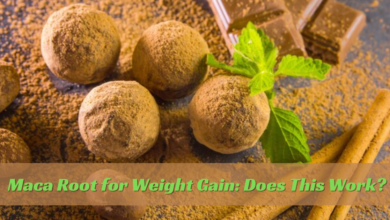Do Pre Workouts Make You Weight Gain?

The fitness industry is filled with an array of supplements, and pre-workouts have gained popularity among individuals seeking an extra boost of energy and enhanced performance during exercise. However, concerns have been raised about whether pre-workouts contribute to weight gain. This article aims to explore the topic and shed light on the facts and myths surrounding pre-workout supplements and their potential impact on body weight.

Understanding Pre-Workout Supplements
Pre-workout supplements, available in powder or pill form, are favored by fitness enthusiasts and athletes seeking improved workout performance. Taken before exercise, they offer an energy, focus, and endurance boost. However, it is important to note that pre-workouts alone do not directly cause weight gain.
One of the key ingredients in pre-workout supplements is caffeine, a stimulant that can increase alertness and reduce fatigue. Caffeine works by blocking adenosine receptors in the brain, which helps to improve mental clarity and physical performance.
In addition to caffeine, pre-workout supplements often contain other ingredients such as beta-alanine, creatine, and B-vitamins. Beta-alanine is known to reduce muscle fatigue and increase endurance, while creatine helps to improve strength and power output. B-vitamins play a role in energy production and metabolism.
Effects of Pre-Workouts on Weight Gain
Pre-workout supplements are popular among fitness enthusiasts for their ability to enhance energy, focus, and performance during workouts. While they are primarily designed to improve exercise performance, they do not directly cause weight gain.
Most pre-workout supplements contain caffeine, creatine, and amino acids to boost energy and enhance muscle performance. These effects may facilitate weight gain through increased muscle mass over time. However, it’s important to note that weight gain from muscle growth is a gradual process that necessitates consistent training, proper nutrition, and a caloric surplus. Hence, the question “Do pre workouts make you weight gain?” can be addressed in light of these factors.
It’s important to note that some pre-workout supplements may contain added sugars or calories, particularly if they come in the form of ready-to-drink shakes or powders mixed with high-calorie beverages. In these cases, excessive consumption of such supplements without accounting for the additional calories may contribute to weight gain. It is advisable to read the labels and choose pre-workout supplements that align with personal fitness goals and dietary needs.
The Role of Calories and Energy Balance
Calories and energy balance play a crucial role in maintaining a healthy body weight and overall well-being. Calories are a measure of energy, and they are obtained from the food and beverages we consume. Energy balance refers to the relationship between the calories we consume and the calories we expend through physical activity and bodily functions.
To maintain a stable weight, it is important to achieve an energy balance, where the calories consumed equal the calories expended. If we consistently consume more calories than we burn, the excess energy is stored as fat, leading to weight gain. On the other hand, if we consistently burn more calories than we consume, our body utilizes stored fat for energy, resulting in weight loss.
However, the role of calories and energy balance goes beyond weight management. Calories provide the energy needed for daily activities, including metabolic processes, physical exercise, and cognitive functions. By maintaining an appropriate energy balance, we can optimize our physical and mental performance.
Water Retention and Weight Fluctuation
Water retention refers to the build-up of extra fluid in the body’s tissues, causing temporary weight gain and bloating. It can be influenced by hormonal changes, excessive salt intake, certain medications, and underlying health conditions. However, it is important to note that the use of pre-workout supplements does not directly cause weight gain.
Weight fluctuation caused by water retention is usually temporary and can range from a few pounds to several pounds in a short period. It is crucial to note that this weight gain does not indicate an increase in fat. The additional pounds mainly comprise retained water and do not reflect actual changes in body composition. As for your additional question, “Do pre workouts make you gain weight?”
Water retention can be managed by adopting certain lifestyle modifications. These include reducing salt intake, staying hydrated, engaging in regular physical activity, and consuming a balanced diet rich in fruits and vegetables. Additionally, avoiding tight clothing and elevating the legs when possible can help alleviate fluid buildup in the lower extremities.

Muscle Gain and Body Composition
Pre-workout supplements can indirectly influence weight through their impact on muscle gain and body composition. Many ingredients found in pre-workouts, such as branched-chain amino acids (BCAAs) and creatine, are known to support muscle growth and recovery. Regular exercise combined with adequate protein intake and proper resistance training is crucial for muscle development.
Pre-workout supplements can improve workout performance, potentially leading to muscle growth and, in the long run, weight gain. However, it’s important to understand that muscle gain takes time and any weight increase from muscle growth occurs gradually. So, the question “Do pre-workouts make you weight gain?” is relevant in considering the long-term effects.
Furthermore, it is worth noting that the perceived increase in weight caused by muscle gain is typically significantly lower compared to the weight gain often attributed to the accumulation of body fat. On a related note, it is important to address the question of whether pre-workout supplements lead to weight gain.
Individual Differences and Sensitivity
Individual differences refer to the variations in characteristics, traits, and behaviors among individuals. These differences can include personality traits, cognitive abilities, emotional responses, and social skills. Sensitivity, on the other hand, relates to the level of responsiveness or susceptibility an individual has towards external stimuli or internal experiences.
Some individuals may be highly sensitive, meaning they react more strongly or are more affected by certain stimuli, while others may have a lower sensitivity and require stronger or more intense stimuli to elicit a response.
These individual differences and sensitivity levels can impact how individuals perceive and interact with the world, influencing their preferences, reactions, and overall functioning. Understanding and respecting these variations can help foster better communication, relationships, and well-being among individuals.
Choosing the Right Pre-Workout
Choosing the right pre-workout supplement is crucial for optimizing your workout performance and achieving your fitness goals. With numerous options available in the market, it’s important to consider several factors before making a decision.
Firstly, check the ingredients list. Look for pre-workouts that contain scientifically-backed ingredients like caffeine, beta-alanine, creatine, and citrulline malate. These ingredients are known to enhance energy, focus, strength, and endurance.
Next, consider your goals and tolerance levels. If you’re sensitive to stimulants or want to avoid excessive caffeine intake, opt for a stimulant-free or low-stimulant pre-workout. On the other hand, if you need an extra energy boost, choose a pre-workout with a moderate to high caffeine content.
Additionally, consider the dosage and serving size. Some pre-workouts require multiple scoops or larger servings, which may not be convenient for everyone. Choose a product that fits your preferences and lifestyle.
Lastly, read reviews and seek recommendations from trusted sources or fitness professionals. They can provide valuable insights and help you make an informed decision.
Remember, the right pre-workout supplement should align with your fitness goals, dietary needs, and personal preferences to maximize your workout performance and overall results.
Conclusion
In conclusion, pre-workout supplements are not directly responsible for weight gain. Their calorie content is generally minimal, and any temporary weight increase due to water retention is not indicative of fat gain. Instead, pre-workouts can indirectly contribute to weight gain by supporting muscle growth and improving exercise performance. However, it is important to remember that weight gain from muscle is generally a slow process, and the overall impact on body weight is modest.

FAQs
Is pre-workout good to lose weight?
Pre-workout alone is not effective for weight loss. A balanced diet and exercise routine are crucial for success.
Does pre-workout increase belly fat?
No, pre-workout supplements do not directly cause an increase in belly fat. Diet and exercise are key factors.
Does a pre-workout add to calories?
No, pre-workout supplements typically do not add significant calories, as they are low in calories or calorie-free.
What are the side effects of pre-workout?
Possible side effects of pre-workout supplements include increased heart rate, high blood pressure, insomnia, gastrointestinal issues, and dehydration.





One Comment